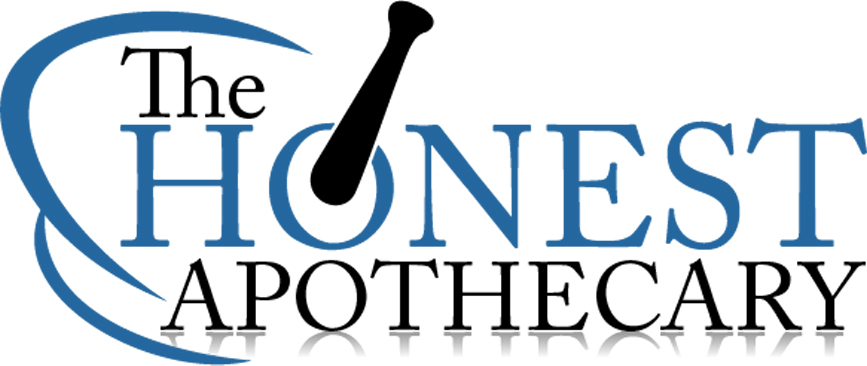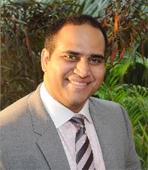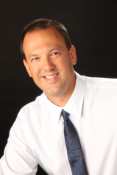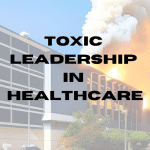There has not been any more hotly debated issue in pharmacy circles in recent years than pharmacy compounding. The subject was brought painfully to the forefront following the tragedy associated with the NECC incident at the end of 2012 that resulted in 55 deaths from fungal meningitis. Pharmacists and pharmacy owners involved in compounding, particularly sterile compounding, have been under significant scrutiny, and rightly so. Many have welcomed the heightened awareness and believe, as I do, that the practice of compounding can and should be protected – as it provides an important service to patients and can be practiced safely and effectively.
But I’m not a lawyer, and the issues surrounding the practice of compounding in a pharmacy setting have significant legal implications. So I reached out to my friend and pharmacist Darshan Kulkarni, Pharm.D, MS, Esq. Darshan is a registered pharmacist who then pursued a law degree and opened Kulkarni Law Firm. He is an author, teacher and frequent speaker at seminars and conferences on pharmacy law. He is also an active contributor on several social media platforms, such as Twitter where he and I met.
I am very grateful that Darshan was willing to answer a few questions for us at The Honest Apothecary about his own career, and about pharmacy compounding law in particular. Darshan, thank you!
1) Darshan, can you tell us a little about yourself and your career as a pharmacist prior to law school?
I grew up in India and came to the US when I was still a kid. My family previously had substantial dealings with the life sciences and healthcare industries and I intended to continue the tradition. I started at community college (where I was proud to finish 60 credits and graduated in a single year) and then was invited to the University of the Sciences (then the Philadelphia College of Pharmacy) for pharmacy school. Turns out, I was part of the last batch of PCPS graduates, and the first batch of USP/USciences graduates. So, as expected, I worked as a pharmacy intern, then as a community and hospital pharmacist before extensively temping as a pharmacist.
2) When and why did you decide to go to law school and open a legal firm?
Due to my family’s dealings with the life sciences and healthcare industries, I learned very early on that it is critical that all businesses address 3 parts of their business needs: (1) the technical aspects; (2) the legal aspects, and (3) the business aspects. I dealt with the technical aspects with my Pharm.D, the legal aspects with my JD, and due to my significant dealings with business and accounting, I had a head start on the business aspects. I also knew that the life sciences and healthcare industries are some of the most regulated in the world and hence decided to complete a Masters in Quality Assurance/Regulatory Affairs. After completing this education, I worked in various capacities in healthcare and the life sciences, including as corporate counsel for a multinational company. During this time I realized the need for attorneys that understood the workings of the FDA. So, when I left the company (on amicable terms), I decided to start a law firm that addressed the needs of FDA regulated companies.
3) Can you tell us a little about your firm and the type of clients you serve?
The firm has existed for about 4 years and focuses on FDA regulated companies and their service providers. The firm consists of a core group of 3 individuals; however, due to extensive access to data, we reach out as necessary to other advisors, consultants, and contractors.
4) Can you share what other sorts of activities you are involved in to help promote your legal practice and share your expertise with others?
I am very active on many social media channels including Twitter, Linkedin, Google Plus, Facebook, Pinterest, and maintain a blog.
I speak extensively all over the country (and on occasion across the world) on FDA and non-FDA related matters for FDA regulated companies.
I am routinely interviewed and quoted in many print publications.
I conduct webinar-based training programs on various healthcare and life sciences related topics.
I have written the chapter about the India Pharmaceutical Industry in the Principles and Practice of Pharmaceutical Medicine. I serve on the Editorial Board for both FDANews.com and Applied Clinical Trials. I also serve on the Board of the Health Law Section for the National Bar Association and am the Social Media Liaison for the Fraud and Abuse Section of the American Bar Association.
Additionally, I am Associate Adjunct Professor at the University of the Sciences where I teach several FDA related courses in the Biomedical Writing Program and in the MBA program.
5) How has the recent tragedy related to the NECC meningitis issue affected your practice? How can you help pharmacies concerned about the legal implications of compounding?
The recent tragedy at NECC demonstrates the differences in expectations between the FDA and pharmacists who are typically unprepared to handle the scrutiny of the FDA (and by extension, the US Attorney’s Office and Department of Justice). It is critical that pharmacies subjected to these audits understand the expectations of the FDA and know what to say and what not to. The stakes are high because inappropriate or inadequate responses or planning can result in extensive fines, penalties, and possible jail time. The Firm helps these pharmacies meet these constantly changing requirements by, amongst other things, planning for FDA audits, managing the audit itself, and finally responding to the FDA’s expectations.
6) Do you provide any services directly to pharmacists? If so, what kind?
The firm helps pharmacists and their service providers comply with the requirements of HHS and the FDA. The firm may be asked to deal with escalations against individuals, including matters involving the Dept. of Justice and/or the US Attorney’s Office.
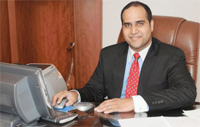 7) You get to see the pharmacy profession from an entirely different perspective than most pharmacists. From your perspective, what does the future of the profession look like? Do you have any concerns about the profession?
7) You get to see the pharmacy profession from an entirely different perspective than most pharmacists. From your perspective, what does the future of the profession look like? Do you have any concerns about the profession?
With the advent of the Affordable Care Act, Physician Payment Sunshine Act, and several other laws and regulations, there has been a significant increase in the connection between life sciences and healthcare. This is unlikely to slow down. The early indicators of the change, such as a focus on pharmacoeconomics and Health IT, have already begun. The future is likely to see greater involvement in HHS (fraud) and FDA (GMP) level involvement. With the current, and almost singular, focus on clinical pharmacy I worry that we as a profession may face scrutiny from unwelcome sources from the government for failure to be compliant and/or adapt.
8) We met on Twitter. Can you tell us a little about your view of Twitter as a pharmacist and your own strategy for using this social media tool?
Twitter is a great tool to begin conversations with people you don’t know. I use it as a resource for the latest news (it’s effectively like drinking out of a fountain) and an HR/networking resource (you can find some amazingly smart, resourceful people) for business and non-business related matters.
9) When you are not working (does that ever happen?) what sorts of things do you like doing?
I really enjoy movies. I am currently learning how to sing (turns out, I am not very good at it).
10) Finally…would you recommend a legal career to pharmacy students who might be thinking about this path?
I recommend a legal career to pharmacy students who have a specific interest in a specific portion of the law. There is currently an excess of lawyers, so just having a pharmacy degree before it doesn’t mean that you will get a better paying job. Find a specific niche that works for you. Whether it’s in law, medicine, finance, or something else, find out what you would like to be, and why someone would pay you specifically to do that. If you can answer those questions, it may be a good fit.
Once again I want to thank Darshan for speaking with us here at The Honest Apothecary. If you have a particular question for him, please consider asking it below, or contacting him on his website.
©Jason Poquette and The Honest Apothecary. Unauthorized use and/or duplication of this material without express and written permission from this blog’s author and/or owner is strictly prohibited. Excerpts and links may be used, provided that full and clear credit is given to Jason Poquette and The Honest Apothecary with appropriate and specific direction to the original content
Darshan Kulkarni Pharmacist Careers Pharmacy Compounding Pharmacy Law
Last modified: April 17, 2023
